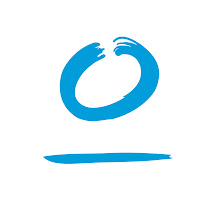
A new client said to me the other day, “I don’t want to always have to go where I’ve already been. I don’t want to live backwards." Those last two words really caught my attention.
“What do you mean by that?” I asked her.
She explained, “I want to create my life here, build something here – a home, a life. I don’t want to go backwards to stuff I know, just to be comfortable.”
This struck me as something very profound and very brave. As we explored this idea more, we discovered that she didn’t mean you should get rid of traditions or not go to places where you feel at home. It had more to do with exploring the present.
She was in a new place. Not just a new city, but a new professional cross-roads. What was the city she lived in all about? What kind of job should she be pursuing in this new place? It was more about living in the present and not always reminiscing about the past or thinking about the future. It is important to be able to shift between these different planes of thinking and being, but it is easy to get stuck.
Change can be hard: emotionally, mentally, physically.

Getting Stuck in a Rut
One way we often cope is by trying to control the amount of change we have to deal with on a day-to-day basis. We keep the same routines -- drink the same kind of coffee, keep the same hairstyle. We look for the familiar in the unfamiliar, basketball courts in Taipei instead of tea houses, for example.
However, this is one place we can get stuck. Once we find these familiar things, we can get caught in making things like they used to be. Before CHANGE happened everything was clear, simple – just right. It’s great I can just recreate it again, isn’t it?!
That’s what we call a bubble. It feels safe and protective, but it also keeps you from growing and developing new skills and insights. Perhaps this is what my client meant about “living backwards”.

Coping with Change
We can stay in our safe bubble. Or we can choose to grow - to take risks - to transform. Change is scary. It can be stressful. Change can feel like you are caught in a fast moving tide, and you are not sure where it’s going. You can’t see around the next turn, although you try to plan for it. It can be exciting, exhausting or - both.
One way to cope with change is to recognize it, and observe it. Pretend it is a tide you are in. I like to imagine that instead of swimming against the current or surfing the waves that rush ahead, I am just floating. Gently rolling up and down with the tide, saving my energy for the big push to shore.

Which shore? I’ll know it when I see it – and so will you.




No comments:
Post a Comment